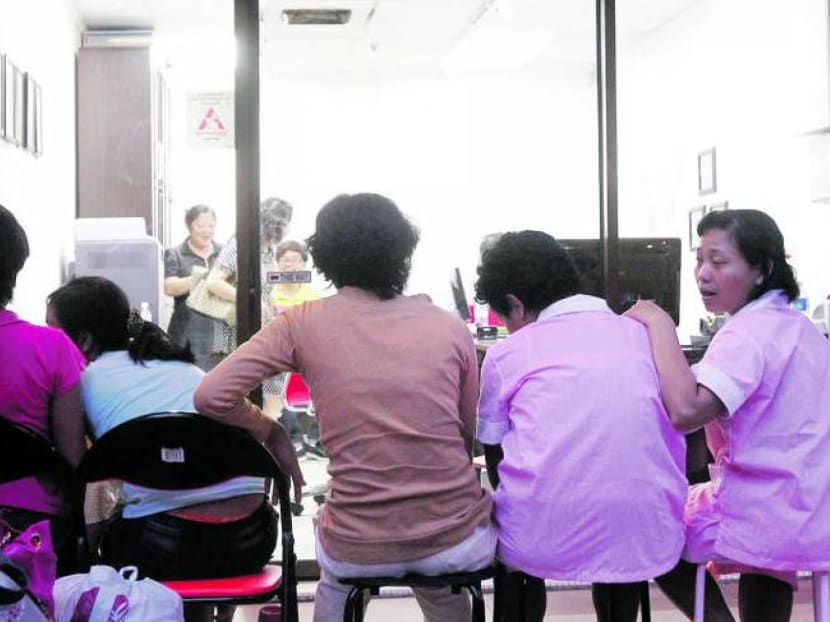Foreign domestic workers more likely to develop mental health problems
Foreign domestic workers more likely than general S’pore population to develop mental health problems
Foreign domestic workers more likely than general S’pore population to develop mental health problems
SINGAPORE – A new study has found that foreign domestic workers (FDW) have double the risk to develop mental health problems as compared to the general Singapore population.
The study, conducted by Humanitarian Organization for Migration Economics (HOME) and revealed today (March 8) showed that almost a quarter (24 per cent) of the 670 FDWs surveyed, are facing poor mental health.
This means that more than two in 10 FDW have poor mental health as compared to a study conducted by the Institute of Mental Health in 2010 which showed that at least one in 10 people in Singapore which will be stricken by mental illness in their lifetime.
Several factors such as working and living conditions proved to be significantly related to impact a FWD’s mental health, said the study.
“Having sufficient rest, one’s own room to sleep in, a stable social network and adequate nutritional and medical attention are crucial for good mental health in FDWs,” it added.
The study showed that the most severe symptoms amongst those surveyed were psychoticism – a mental state of “losing contact with reality” which includes symptoms such as hallucinations – depression and interpersonal sensitivity – which means they feel inferior or inadequate as compared to others.
“There are clear correlations between FDWs’ mental health issues and exploitative, restrictive and/or abusive working and living conditions,” said the study.
The survey also revealed that more than half (51 per cent) of the participants experienced some form of abusive behaviour such as yelling or screaming and even name-calling.
The survey was conducted between Nov 2013 and May last year. Almost half (48.1 per cent) of the FDWs surveyed – with an average age of 33 – were from Indonesia and more than a third (34.7 per cent) were from the Philippines. The other nationalities surveyed also include those from Myanmar.










